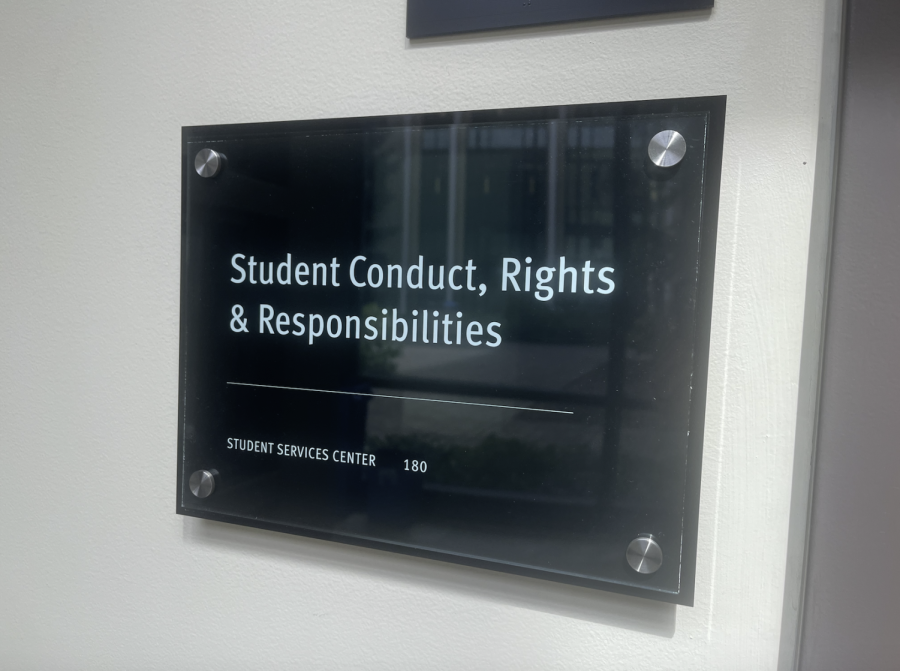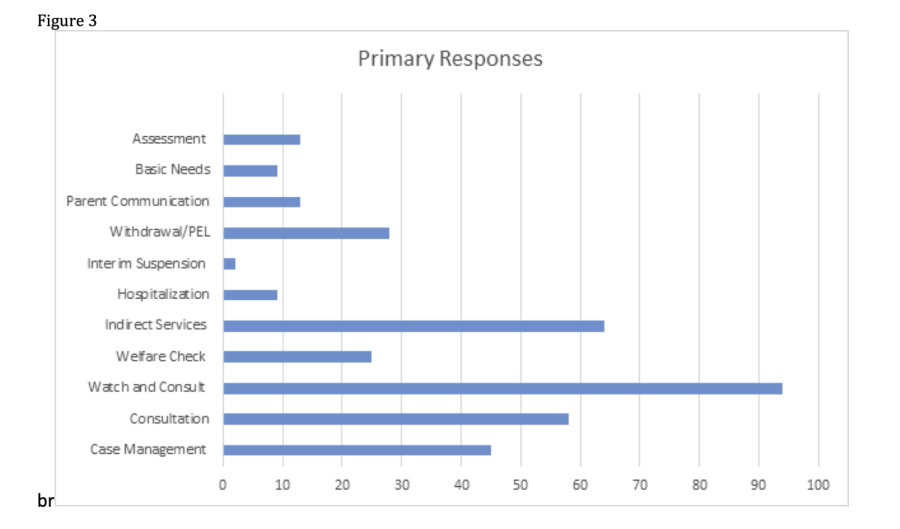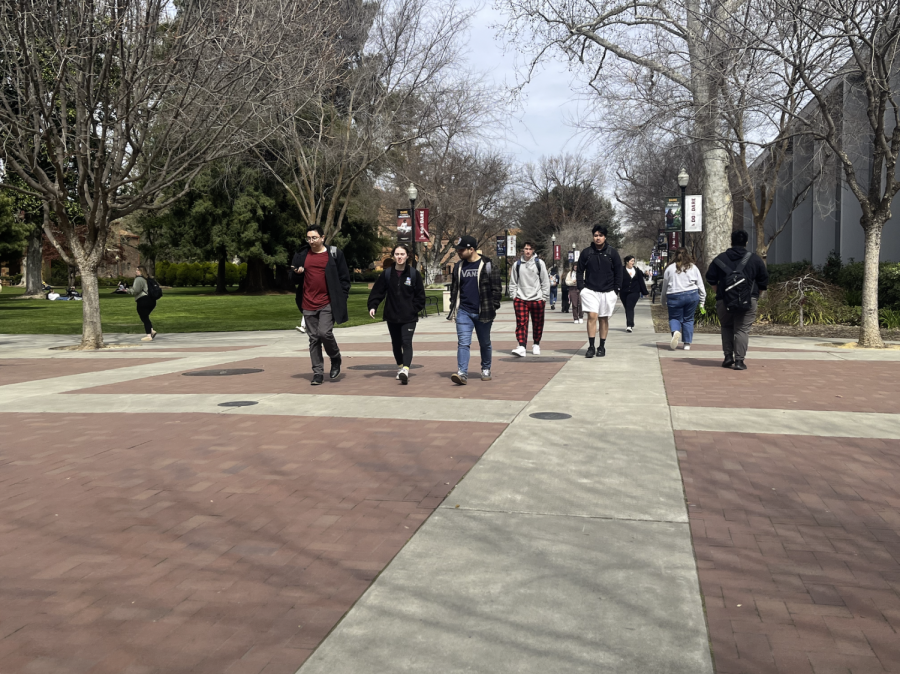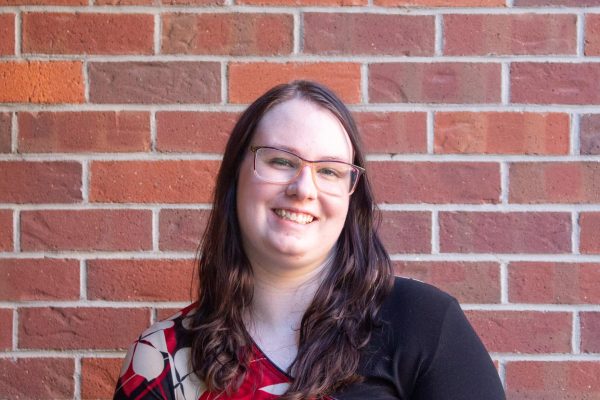In the 2022 fall semester, I had an issue regarding a person in one of my classes that was being disrespectful to myself and the other women in our group. It got to the point that we did not feel comfortable being in a group with him. We asked our teacher to remove him from the group.
After stating that she hadn’t seen that sort of behavior from him, she proceeded to have a private meeting with him about his behavior, and he stated that he would no longer act that way, but the damage had already been done.
We were forced to work with him, but a sense of tension existed until our project concluded. We no longer trusted, or wanted to be around him.
Alone I decided to submit a student conduct form. I had no idea what I was expecting to come of it, let alone what to do and I was too nervous to ask for help.
I just wanted to make sure this person would never make anyone feel that way again.
I was worried about submitting a report, partially because I didn’t know what report to submit, but also because I was worried that the situation wasn’t dire enough to be taken seriously. Our professor was flippant about it, so why would anyone else care?
The end of the letter sent to me by the student conduct admin said this:
“If you genuinely feel concerned for your safety when in the presence of this individual please contact University Police at (530) 898-5555. The semester is almost over. The finish line is near. Finish off strong!”
While meaning can be hard to define from virtual text, when you’re already feeling embarrassed about asking for help, the language used here doesn’t help the situation.
Students have the right to safety. They have the right to walk on the campus they pay tuition to be on. They deserve to go to class, attend lectures and participate in labs and discussions without having to worry about campus community members who would do ill.
Unfortunately, bad things happen. According to the 2022 Chico State University Police Department’s Annual Security Report, a summary that the school is required to submit to the federal government each year says that from 2019 to 2021 there were:
- 12 instances of rape
- Nine of fondling
- Four of domestic violence
- Four of stalking
- Three of aggravated assault
- Three of statutory rape
According to the National Center for Education Statistics fast facts, 27,300 crimes on a college campus were reported to police and security agencies in 2019 across the country. Out of these, 43% of them were forcible sex offenses.
Campuses have programs to help students take action against those who have hurt and scared them. Chico State is no different.

There are multiple ways that a campus community member can report a conduct issue:
- Call the Campus Assessment Response Evaluation Team at 530-898-5093, or email them at care@csuchico.edu; you can also visit their website to download a bias incident reporting form
- To file a criminal or anonymous report, go to the University Police Department website
- To file a Title IX report, call the Title IX office at 530-898-4949
- To file a Title 5 report, or a behavioral incident form, go to the Student Conduct, Rights and Responsibilities page
- Visit the SCRR page to file a student complaint form
There are other forms that can be found on the Chico State website. The university announced at the beginning of the semester — during a campus safety forum — that an incident reporting form will be added to the student portal. It is not yet live.
“Student Affairs has created the incident report form, but the stakeholders are finalizing the technical logistics to ensure it will work as envisioned,” Ashley Gebb, executive director of university communications, said. “The hope is to launch it in the Portal soon, and I’d anticipate a campus communication will alert everyone that it is live.”
However, before a student can properly submit a form, they are expected to become familiar with student conduct guidelines. It is up to the student to read through the Title 5 guidelines, student complaint policy and Title IX guidelines and other types of reports.
While knowledge is power, as Sir Francis Bacon said, requiring a reporter who is in emotional distress to read through information to figure out how to file a report is a big ask.
Because some student conduct areas do not have online forms, the act of calling an office to get help or file a report may be difficult to do, especially after going through an emotional, mental, physical or sexual abuse situation.
“Some survivors feel frozen after experiencing abuse and are terrified to contact the police. For other survivors, the decision to not report is initially just a matter of delaying or procrastinating, as many require time to process their feelings following an assault,” according to the Dordulian Law Group. “As time passes, however, they can grow increasingly reluctant to ever address the incident. Eventually, some decide to move on and never report the abuse.”
Trying to work up the courage to actually talk to someone may be difficult. The waiting may be even worse.
Outside of UPD, Chico State has three teams prepared to assess and address reports:
- CARE team
- Campus Violence Consultation Team
- Campus Activity Review Team
The CARE team “addresses situations where students display disruptive, threatening, or concerning behaviors, which may impact their ability to be successful and safe,” said Sean Murphy, the university communications public information officer.
The team coordinates follow-ups and provides resources after performing “a risk or threat assessment and determines the best mechanisms for support, intervention, warning/notification, and response,” said Murphy.

According to the CARE team’s 2017-2018 annual report, the primary responses to reports include consultation, assessment and welfare checks. Some resources CARE provides are academic advising, mental and physical health, accommodations, basic needs, advocacy and case management.
The CVCT “is charged with determining whether immediate action is warranted, whether or not an investigation is warranted, and the appropriate party to conduct the investigation in response to potentially violent situations … which involve students, staff, or faculty members collectively, individually, or any combination thereof,” Murphy said.
The team assigns an investigator to an incident, reviews the investigation and then informs the vice provost of academic personnel, the assistant vice president of human resources or the director of student conduct rights and responsibilities for a follow-up.
Murphy said that if an investigation is sparked, some actions that could be taken are: discipline, intervention, support or other actions depending on the facts.
The CART’s goal is to provide a “safe and inclusive environment for all.” They address events and social justice issues on campus.
“To report to this group, you need to create an incident report,” Murphy said. “They provide faculty with tools to protect, support and empower our students in both the short-and-long term.”
The team provides faculty with tools, such as the WellCat Counseling Center, WellCat Safe Place, California State University Red Folder, ProtoCall crisis line, 530-898-6345, and TimelyCare.
All student conduct procedures follow Executive Order 1098, according to Murphy.
The steps and procedures that Chico State uses to address student conduct issues aligns with the American Bar Association’s view of how campuses can improve student conduct processes, specifically regarding gender-based issues.
Despite the amount of teams and resources available, it all means nothing if people don’t feel comfortable submitting a response.
“Students are expected to be good citizens and to engage in responsible behaviors that reflect well upon their university, to be civil to one another and to others in the campus community, and contribute positively to student and university life,” Murphy said.
Just as it is the students’ responsibility to be “good citizens,” it is also the university’s responsibility to provide sufficient help for when students aren’t “good citizens.”
It’s already hard enough trying to make the decision whether or not to report an incident, so having to spend more time researching, waiting for email responses or trying to work up enough courage to make a phone call, gives more time for students to overthink and talk themselves out of filing a report.
The reporting process needs to be more precise, hopefully the portal reporting form will help with this, but there should also be more support surrounding those who are struggling internally with whether or not they should file a report. There should be more acceptance.
No one should have to feel scared, nervous or embarrassed when trying to get help.
Ariana Powell can be reached at orionmanagingeditor@gmail.com.








